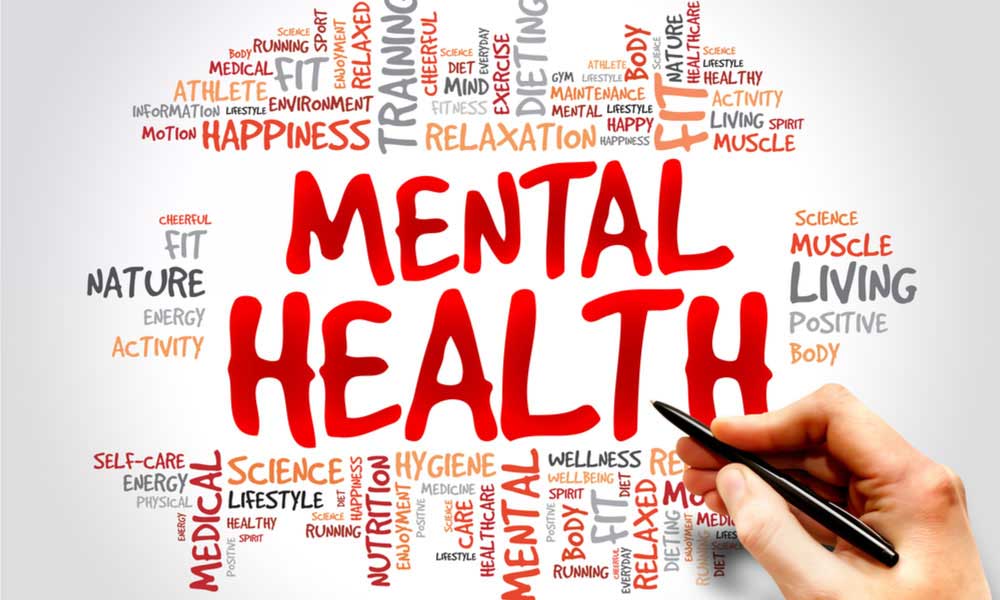How can an unhealthy lifestyle affect your mental health?

In this article, we delve into the intricate relationship between lifestyle choices and mental health. From diet and exercise to sleep patterns and social connections, every aspect of our daily routine plays a role in shaping our psychological state. Let’s explore how an unhealthy lifestyle can detrimentally affect your mental health and discover actionable tips for cultivating a happier and more balanced life.
The Domino Effect: How Lifestyle Choices Influence Mental Health
Diet: The Fuel for Body and Mind
A diet rich in processed foods, sugars, and unhealthy fats not only impacts physical health but also takes a toll on mental well-being. Research suggests a strong correlation between poor dietary habits and an increased risk of depression and anxiety disorders. High-glycemic index diets, lacking in essential nutrients like omega-3 fatty acids and antioxidants, contribute to inflammation in the brain, exacerbating mood swings and cognitive decline.
Sedentary Lifestyle: Sitting Ducks for Mental Health Issues
In today’s sedentary society, physical inactivity has become a rampant problem with dire consequences for mental health. Regular exercise is not only crucial for maintaining a healthy weight and cardiovascular fitness but also serves as a powerful mood enhancer. Engaging in physical activity releases endorphins, neurotransmitters that alleviate stress and promote feelings of euphoria and well-being.
Sleep Deprivation: The Silent Saboteur of Mental Wellness
Inadequate sleep is a common byproduct of our hectic lifestyles, wreaking havoc on our mental health. Chronic sleep deprivation disrupts neurotransmitter function, impairs cognitive abilities, and heightens emotional reactivity. Moreover, poor sleep quality is closely linked to mood disorders such as depression and bipolar disorder. Prioritizing restorative sleep is essential for safeguarding mental resilience and emotional equilibrium.
Social Isolation: Loneliness in a Hyperconnected World
Despite living in an era of unprecedented connectivity, many individuals experience profound loneliness and social isolation. Human beings are inherently social creatures, and meaningful interpersonal connections are essential for mental well-being. Persistent loneliness not only increases the risk of depression and anxiety but also weakens the immune system and accelerates cognitive decline.
Substance Abuse: Escaping Reality, Losing Sanity
Substance abuse, whether in the form of alcohol, drugs, or tobacco, is a maladaptive coping mechanism that exacerbates mental health issues. While substances may provide temporary relief from stress and emotional pain, they ultimately worsen psychological symptoms and impair judgment. Substance abuse disorders often co-occur with mood disorders, creating a vicious cycle of addiction and mental illness.
Chronic Stress: The Silent Killer of Mental Resilience
In today’s fast-paced world, chronic stress has become a ubiquitous companion, undermining mental resilience and vitality. Prolonged exposure to stress hormones like cortisol disrupts neural circuits involved in mood regulation, leading to anxiety, depression, and burnout. Learning effective stress management techniques, such as mindfulness meditation and deep breathing exercises, is paramount for preserving mental well-being.
Environmental Factors: Shaping Our Psychological Landscape
Our physical environment plays a significant role in shaping our psychological landscape. From air and noise pollution to overcrowded urban spaces, environmental stressors can exacerbate mental health issues. Access to green spaces, natural sunlight, and clean air, on the other hand, promotes relaxation, enhances mood, and fosters a sense of connection with the natural world.
How Can an Unhealthy Lifestyle Affect Your Mental Health?
The Mind-Body Connection: Bridging the Gulf
The mind and body are intricately interconnected, with each influencing the other in profound ways. An unhealthy lifestyle disrupts this delicate balance, compromising both physical and mental well-being. By adopting healthier habits and nurturing our bodies, we can fortify our minds and cultivate resilience in the face of life’s challenges.
Breaking the Cycle: Steps Toward Mental Wellness
Breaking free from the grip of an unhealthy lifestyle requires commitment, resilience, and a willingness to change. By prioritizing self-care, fostering supportive relationships, and seeking professional help when needed, individuals can embark on a journey toward mental wellness and reclaim control over their lives.
Embracing Balance: The Key to Lasting Happiness
In a world teeming with distractions and obligations, finding balance is the cornerstone of mental wellness. Balancing work and leisure, solitude and socializing, indulgence and moderation, empowers individuals to lead fulfilling and meaningful lives. Embracing balance allows us to savor life’s joys, navigate its challenges, and cultivate resilience in the face of adversity.
Seeking Support: The Power of Connection
Seeking support from friends, family, and mental health professionals is not a sign of weakness but rather a testament to strength and resilience. Opening up about struggles, sharing experiences, and seeking guidance fosters connection, empathy, and understanding. Together, we can overcome obstacles, and weather storms, and emerge stronger and more resilient than ever before.
Cultivating Resilience: Thriving in Adversity
Resilience is the ability to bounce back from setbacks, adapt to change, and thrive in the face of adversity. Cultivating resilience involves developing coping strategies, fostering optimism, and cultivating a growth mindset. By reframing challenges as opportunities for growth and learning, individuals can harness their inner strength and resilience to navigate life’s ups and downs with grace and fortitude.
Frequently Asked Questions (FAQs)
- How does exercise impact mental health? Regular exercise boosts mood, reduces stress, and improves cognitive function by promoting the release of endorphins and neurotransmitters like serotonin and dopamine.
- Can a poor diet contribute to anxiety and depression? Yes, diets high in processed foods and sugars can exacerbate inflammation in the brain, leading to an increased risk of mood disorders such as anxiety and depression.
- What role does social support play in mental health? Social support from friends, family, and community networks acts as a buffer against stress, reduces feelings of loneliness, and promotes overall psychological well-being.
- How does chronic stress affect mental health? Chronic stress disrupts neural circuits involved in mood regulation, leading to anxiety, depression, and other mental health disorders if left unchecked.
- Is seeking professional help important for managing mental health issues? Yes, seeking professional help from therapists, counselors, or psychiatrists is crucial for effectively managing mental health issues and developing coping strategies.
- Can environmental factors impact mental well-being? Yes, environmental stressors such as pollution and overcrowding can exacerbate mental health issues, while access to green spaces and natural sunlight promotes relaxation and enhances mood.
Conclusion: Prioritizing Mental Wellness in a Fast-Paced World
In conclusion, the impact of an unhealthy lifestyle on mental health cannot be overstated. From poor dietary choices and sedentary habits to chronic stress and social isolation, every aspect of our daily lives influences our psychological well-being. By prioritizing self-care, fostering supportive relationships, and seeking professional help when needed, individuals can embark on a journey toward mental wellness and reclaim control over their lives. Remember, it’s never too late to make positive changes and prioritize your mental health.




Leave a Comment